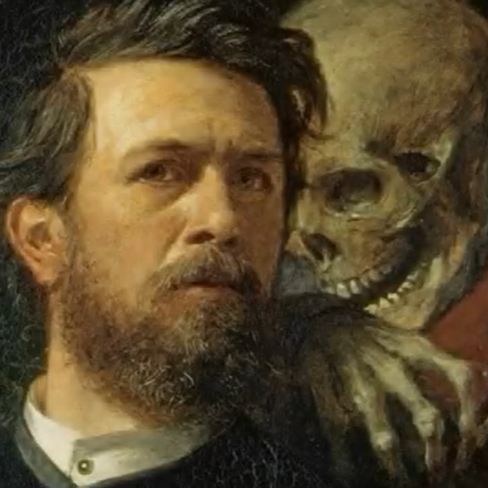

Dostoevsky Shrine:
Because you can't stop me
I'm scared get me out of here
Crime and Punishment First Read:
6/26/2025 | Impressions After Finishing:
(tw: briefly mentions suicide)
I have finally finished reading, and I was honestly surprised that things turned out well for so many of the characters. I was honestly expecting Raskolnikov's confession to be more of a scandal within his personal inner circles than it was, and that was actually really nice.
What stood out to me the most while reading this last bit of the book was the comparison between Raskolnikov and Svidrigailov. It was really interesting to see the very obvious similarity between their experiences and how their different circumstances brought them to different ends, with Raskolnikov confessing and Svidrigailov ending his own life. In the epilouge, Raskolnikov himself even wonders why he chose to go on living when his future seemed so bleak, and I think it was probably the influence of Sonia and her unconditional love for himself and everyone around her that pushed him in the direction he went despite his seeming apathy for the morality of his actions.
I'm probably going to write out a more full-scale review once I've had some time to process. Anyway, I highly recommend this book.
6/9/2025 | Impressions While Reading pt. 2:
I just finished part four of Crime and Punishment and I have so many thoughts. Firstly the whole part about Luzhin and Raskolnikov convincing his sister not to marry him and the subsequent plotting for a buisness venture that would solve everyone's financial woes was beyond heartbreaking. It felt like the Yotsuba arc of Death Note in that that planned business venture and everything that could come along with it could have been a real possibility... had Raskolnikov not been a murderer on the brink of insanity. Nothing (as far as I can remember off the top of my head) in the story before that would lead me to not think that, had Raskolnikov not done what he did, he could have wound up in a good situation. The Yotsuba arc broke my heart because of this a few years ago when I first watched it, with Light working in the police force like he had been working towards his whole life in a peaceful, efficient way that could have been the reality for his entire future if it weren't for the Death Note. Now Dostoevsky has put me through that same pain again and I can't tell whether I love it or hate it.
Secondly, I love Porfiry Petrovich even more now. He knows exactly what he's doing and he says so in very clear terms, but Raskolnikov just won't see it, being so fixated on the little details and traps he could potentially fall into that he doesn't recognize that he's essentially already been caught and that Porfiry is just toying with him at this point.
I'm still a little confused about the whole thing with Raskolnikov and Sonia, mainly about how the story of Lazarus, which Sonia reads during their interaction, plays into everything else going on. My main idea right now is that the inclusion was referencing a "rebirth" of Sonia leaving her current circumstances, which makes sense considering the way Raskolnikov was trying to convince her to get away from everything, but I'm still not sure.
6/7/2025 | Impressions While Reading pt. 1:
I'm a little over halfway through reading Crime and Punishment at the moment, and it has already proven itself worthy of the good things I have heard about it. I love how everything manages to reflect something else in regards to the collection of themes that seem to be running through the work simultaneously.
I think my favorite part so far has to have been the conversation between Raskolnikov and Porfiry Petrovich in which they talk about Raskolnikov's ideas about the two different "classes" of mankind and his idea that murder can occasionally be justified. I found the whole exchange hilarious, with Raskolnikov essentially describing himself from an outside perspective without even realizing it, then, afterwards, only adding to the irony (not sure if that's the right word to describe it, maybe hypocrisy???) when he talks in a scene afterwards about how it's easy to fall into a simple trap when he himself had just fallen into such a trap.
Something else I've noticed while reading is a theme of self-sacrifice because of fiscal irresponsibility on the part of a family member in the cases of both Dunia and Sonia. Raskolnikov seems? aware of the way that his own actions have led his sister to make suboptimal descisions for the sake of financial security, but he seems only to be trying to solve the issue of her engagement and not the underlying problem of his reckless spending. He also seemed weirdly apathetic to Sonia's father's drinking problem that was causing so many problems for that family. I don't quite know how all of this fits into the wider narrative quite yet, but is this attitude just another way of showing the hypocrisy I was describing earlier, or is it something completely different?
These are just some thoughts that having been bouncing around my mind for a little while now, so I don't even know if they make sense, but I am enjoying watching things evolve as I continue reading.

